1. 'Idiocracy'
Dear Collapse Life reader — PLEASE say you’ve seen this film and there’s no need for us to recap it for you. We’re going to make it a requirement for continuing your subscription…
Directed by Mike Judge and released in 2006, this satirical science fiction film has become a classic recurring joke over the past few years. What was meant as comedy has now become a documentary about our times, exploring a world where human intelligence has almost completely disappeared.
The story follows Army Cpl. Joe Bauers (played by Luke Wilson), who is selected for a secret government hibernation experiment and then forgotten, waking up 500 years in the future to find a dysfunctional and crumbling civilization now populated by people of very low intelligence. Once-average Joe is now the smartest person in the world and to save his life he must try to fix the absurdities created by an inept government and a society obsessed with consumerism and entertainment.
The film depicts a population that has lost its critical thinking and problem solving abilities and heavily depends on technology without understanding it. Consumerism and instant gratification dominate, government is more focused on entertainment and populism than effective policy making, and the natural world suffers from complete neglect and resource mismanagement.
OMG — maybe this IS a documentary!
2. 'The Man in the High Castle'
A binge-worthy television series based on the 1962 novel by Philip K. Dick, this show is set in an alternate history where the Axis powers (Nazi Germany and Imperial Japan) won World War II. The United States is divided into the Greater Nazi Reich in the east and the Japanese Pacific States in the west, with a neutral zone in between.
The series — which aired from 2015 to 2019 — follows several characters whose lives intersect as they become involved with a mysterious film reel that shows a different, more hopeful reality where the Allies won the war. Resistance movements in both occupied territories seek to overthrow the oppressive regimes, driven by the hope and inspiration seen in the film reels.
The series portrays a world dominated by fascist regimes, where civil liberties are suppressed and dissent is brutally crushed. An extensive surveillance apparatus is used to monitor and control the population, while the Nazi regime pursues a technology to create alternate realities — crafting a world where truth is elusive. Nationalism and xenophobia are rampant. The series is not just a cautionary tale about the dangers of totalitarianism, but also a commentary on the resilience of the human spirit, the power of hope, and the complex interplay between technology, power, and freedom.
3. 'V for Vendetta'
Based on a graphic novel, this dystopian political thriller was directed by James McTeigue and released in 2005. It’s another cautionary tale about the dangers of totalitarianism, the importance of standing up against oppression, and the enduring struggle for freedom and justice.
Set in a near-future United Kingdom, where a totalitarian regime has seized control, the film follows Evey Hammond (played by Natalie Portman), and her relationship with V (played by Hugo Weaving). V is a masked vigilante seeking to overthrow the oppressive government, which exerts total control over its citizens through surveillance, censorship, and propaganda.
The regime suppresses dissent, persecutes minorities, and uses fear to maintain control, while V uses a combination of both terror and inspiration to ignite a revolution and restore freedom to the people. V's use of the Guy Fawkes mask as a symbol of resistance has become an iconic representation of anti-establishment movements and has been adopted by various protest groups around the world.
The film highlights the role of state-controlled media in shaping public perception and maintaining the regime's power, reflecting current anxieties about fake news, media bias, and the manipulation of information to serve political agendas. It also explores how governments can use fear to control populations, making it a poignant reflection on the Clown World we live in.
4. 'Citizenfour'
Think you know the Edward Snowden story? Not until you’ve seen Citizenfour. Directed by Laura Poitras and released in 2014, this documentary chronicles Snowden’s explosive revelations and provides an unprecedented inside look at the events leading up to and following his decision to disclose classified information about global surveillance programs.
The film captures Snowden's initial contact with Poitras and journalist Glenn Greenwald, their clandestine meetings in a Hong Kong hotel, and the subsequent media frenzy and governmental backlash. Through candid conversations, the documentary reveals the extensive reach of government surveillance and the profound implications for privacy and civil liberties.
Ten years on, Citizenfour remains highly pertinent to the times we’re living in. The documentary's exposure of the NSA's widespread surveillance practices highlights ongoing concerns about the extent to which we are monitored by governments around the world. It raises important questions about the erosion of civil liberties in the name of security and challenges viewers to consider the implications of living in a society where personal communications are routinely monitored, and the potential for abuse of such powers.
The film also underscores the risks faced by people who expose wrongdoing and the important role of the media in uncovering and disseminating crucial information. By exposing the clandestine nature of government operations and the lack of oversight and public awareness regarding surveillance programs, Citizenfour reminds us of the important need for checks and balances to prevent the overreach of state power.
5. 'The Truman Show'
How many times over the past few years have you felt entirely manipulated, wondering whether your life was just one big simulation? That’s exactly the theme explored by Peter Weir in 1998’s ‘The Truman Show.’
Like ‘Idiocracy,’ this supposedly satirical science fiction film starring Jim Carrey as Truman Burbank cuts close to the bone at times. Truman is an ordinary man who gradually discovers that his entire life has been the subject of a meticulously orchestrated 24/7 reality TV show. Unbeknownst to Truman, his friends, family, and everyone he encounters are actors, and his hometown of Seahaven is a massive set.
As Truman starts to notice inconsistencies and seeks to understand his world, he begins to challenge the boundaries of his artificial existence. The movie critiques the manipulation and control exerted by media corporations, reflecting modern-day fears about how media can shape perceptions and realities.
With the rise of virtual reality, deepfakes, and online personas, we can all relate in some way to Truman as the lines between reality and fiction are increasingly blurred. Truman's existence is exploited for profit and entertainment, just like our personal data is mined and monetized, often at the expense of our own free will and personal well-being.
Truman struggles to break free from his fabricated world — seeking truth, authenticity, and genuine connections in a highly commercialized and artificial world — in ways that will be all-too familiar to many of us questioning the nature of reality in our troubled times.

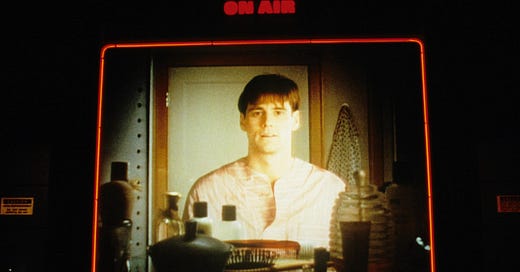

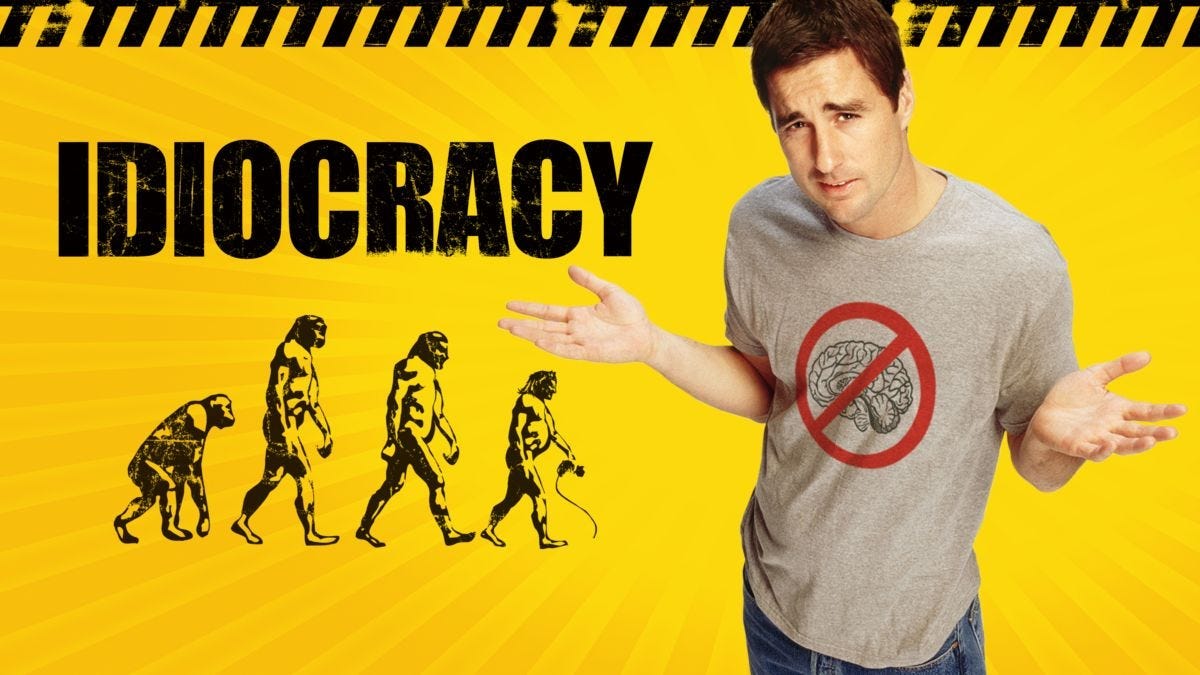
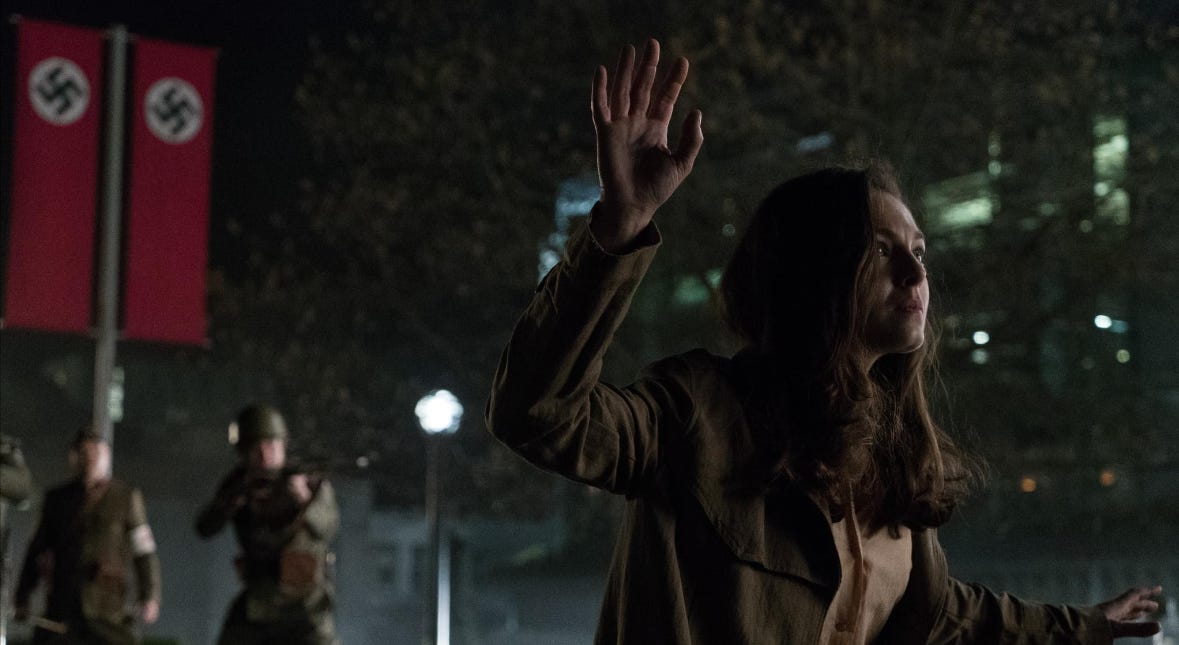
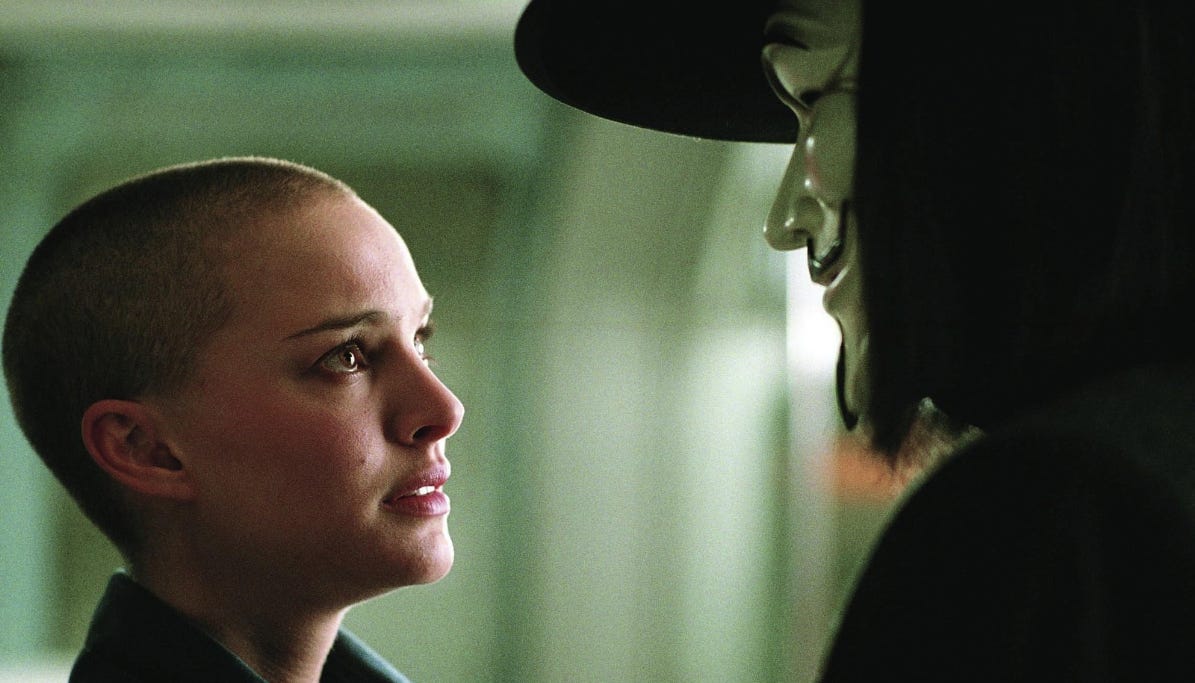
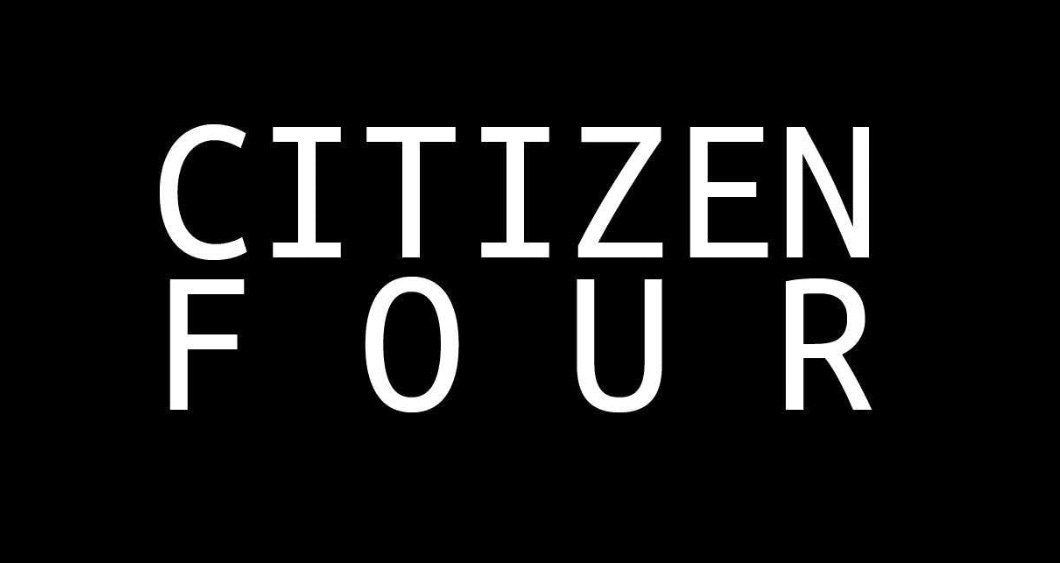

I love the Truman Show and V for Vendetta , will seek out the others you recommend. Thank You
What exactly is wrong with Rambo!!!111